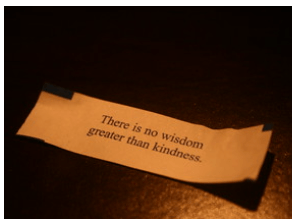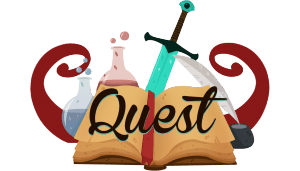 It may have “all started with a Big Bang”, but after 12 seasons, the Big Bang Theory writers gave their loyal viewers a well-written and heartfelt ending ~ which included closure to story lines, a “finally” repaired elevator and scenes that were so moving that they did not require the live studio audience to break out in laughter.
It may have “all started with a Big Bang”, but after 12 seasons, the Big Bang Theory writers gave their loyal viewers a well-written and heartfelt ending ~ which included closure to story lines, a “finally” repaired elevator and scenes that were so moving that they did not require the live studio audience to break out in laughter.
For those of you who may not be familiar with the premise of this show, it becomes apparent within the first few episodes that the main character, Dr. Sheldon Cooper has only quest in life and that is to win the Nobel Peace Prize ~ any cost. It would be interesting to do a word search and see how many times, within the 279 episodes, the writers included a reference to the Nobel Peace Prize.
Like so many quests, the hero’s journey is greatly enriched by the detours, the challenges and the times when all hope is lost. In the case of Sheldon, the writers brilliantly created a cast of characters who accompanied our hero on his quest. They provided comic relief, encouragement and on several occasions, reminders to re-evaluate the cost of being so singularly focused.
Throughout each season, we watched as Sheldon allowed himself to experience deep friendships, love and even marriage. But all the while the quest was still there, lurking below the surface ~ to the point that on his wedding day, with the help of his bride, the magic formula suddenly made sense. The hero had finally achieved a major milestone, which made the quest attainable (with significant help from his wife).
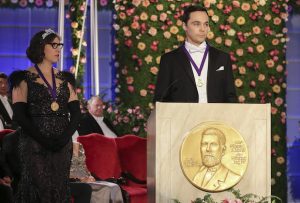
As the final season draws to a conclusion, Sheldon learns that he and his wife, Amy, will be indeed honoured with the Nobel Peace Prize and he begins to craft his acceptance speech. We see the hero revert to his former, self-absorbed self and write 90 minutes worth of his own accomplishments and in the process alienate himself from his “band of brothers”.
With minutes to spare, our hero has a change of heart and instead of regaling the audience with his speech, he turns their attention to his friends and acknowledges their role in his quest. It turns out that those relationships, those challenges, those detours and those times when all faith was lost were the true prize.
As we near the end of this school year and we begin to reflect on the goals that we set in September, (our quest) is it important that we reached that pinnacle? Or is it the learning, the challenges that we overcame and the relationships that were forged or deepened throughout our journey, that we will remember?
Come write with me….

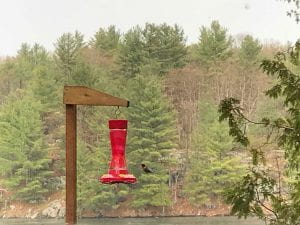
 One does not have to be in a new school to feel that sense of pride and stewardship. As you look towards the upcoming week, what can you do to demonstrate stewardship of resources (natural or other) in your school?
One does not have to be in a new school to feel that sense of pride and stewardship. As you look towards the upcoming week, what can you do to demonstrate stewardship of resources (natural or other) in your school?

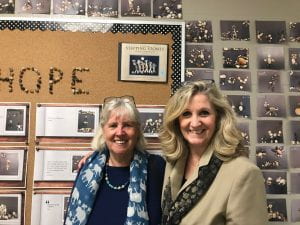 On January 27 2017, I wrote and published a post called, Stepping Stones. It detailed a time in my career, shortly after our school board had welcomed 450 Syrian refugee students, when I took the opportunity to visit schools and share this heartfelt journey of Rama and her family as they fled a war torn country and traveled to safety. A day later, I was thrilled to see that the author,
On January 27 2017, I wrote and published a post called, Stepping Stones. It detailed a time in my career, shortly after our school board had welcomed 450 Syrian refugee students, when I took the opportunity to visit schools and share this heartfelt journey of Rama and her family as they fled a war torn country and traveled to safety. A day later, I was thrilled to see that the author, 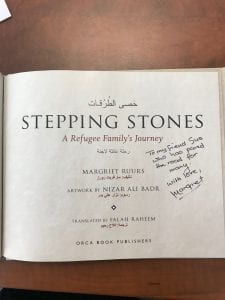
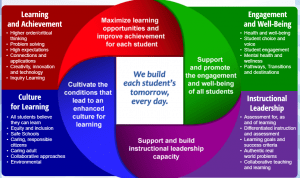
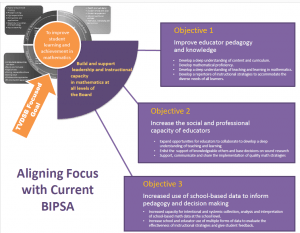 This past year, the focus within the one quadrant became even more narrow, to the point that schools were asked to select one of three math objectives and as a result of attending any system professional learning, the actual wording for the specific goal was provided, along with the strategies and the wording to include on the template. The platform for the template may have created the conditions for system level data collection, based on repeated words, etc., but from an end user lens, it was not friendly in the least. School leaders were starting to have conversations about the fact that our laser focus on math was creating gaps in the learning and documenting student achievement in literacy.
This past year, the focus within the one quadrant became even more narrow, to the point that schools were asked to select one of three math objectives and as a result of attending any system professional learning, the actual wording for the specific goal was provided, along with the strategies and the wording to include on the template. The platform for the template may have created the conditions for system level data collection, based on repeated words, etc., but from an end user lens, it was not friendly in the least. School leaders were starting to have conversations about the fact that our laser focus on math was creating gaps in the learning and documenting student achievement in literacy. I have to admit that being a Boston Bruins fan in a town that has a divided loyalty between the Toronto Maple Leafs and the Detroit Red Wings (along with a few Habs fans) usually means that I silently celebrate as they continue to move closer to a chance at this year’s Stanley Cup. I had to laugh when a couple of weeks ago (as Boston and Toronto were battling it out in the quarterfinals) as I overhead a parent, who was picking us his son, ask our school secretary if it was true that the principal was a Bruins fan. I quickly donned my Bruins cap (which is always close at hand) and emerged from the office. A combination of surprise and laughter ensued as my first glimpse of the parent landed on his Toronto Maple Leafs cap. The student nonchalantly turned to his dad and declared, “See! I told you so”. I then proceeded to share my familiar line, which goes something like this ~ “When you marry a man with the last name Bruyns, your fate as a Boston fan is pretty much sealed. Add to that, I grew up in the seventies in a household where Hockey Night in Canada (complete with Peter Puck) was religiously enjoyed ~ especially when #4 Bobby Orr (who grew up right here in Ontario) was on the ice.
I have to admit that being a Boston Bruins fan in a town that has a divided loyalty between the Toronto Maple Leafs and the Detroit Red Wings (along with a few Habs fans) usually means that I silently celebrate as they continue to move closer to a chance at this year’s Stanley Cup. I had to laugh when a couple of weeks ago (as Boston and Toronto were battling it out in the quarterfinals) as I overhead a parent, who was picking us his son, ask our school secretary if it was true that the principal was a Bruins fan. I quickly donned my Bruins cap (which is always close at hand) and emerged from the office. A combination of surprise and laughter ensued as my first glimpse of the parent landed on his Toronto Maple Leafs cap. The student nonchalantly turned to his dad and declared, “See! I told you so”. I then proceeded to share my familiar line, which goes something like this ~ “When you marry a man with the last name Bruyns, your fate as a Boston fan is pretty much sealed. Add to that, I grew up in the seventies in a household where Hockey Night in Canada (complete with Peter Puck) was religiously enjoyed ~ especially when #4 Bobby Orr (who grew up right here in Ontario) was on the ice.
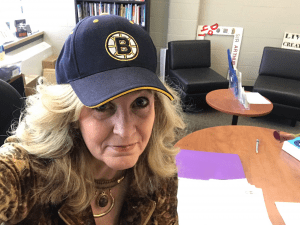
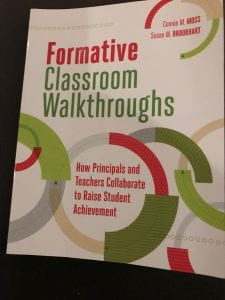 I am currently a part of a book study with a small group of administrators. We are exploring what our own learning looks like as we conduct our classroom walkthroughs ~ which is a significantly different lens than the traditional one of “how do we conduct classroom walkthroughs”. All too often, we find ourselves caught in a leadership checklist mentality, created by others who are holding us accountable for leading our schools but providing us with an attestation, instead of creating the conditions for us to truly learn something and then reflect upon it.
I am currently a part of a book study with a small group of administrators. We are exploring what our own learning looks like as we conduct our classroom walkthroughs ~ which is a significantly different lens than the traditional one of “how do we conduct classroom walkthroughs”. All too often, we find ourselves caught in a leadership checklist mentality, created by others who are holding us accountable for leading our schools but providing us with an attestation, instead of creating the conditions for us to truly learn something and then reflect upon it.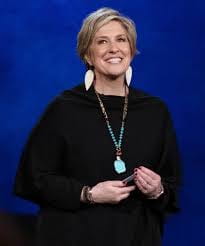 I can clearly recall the first time that I watched Brene Brown’s TedTalk “
I can clearly recall the first time that I watched Brene Brown’s TedTalk “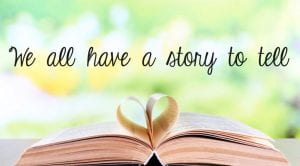 you tell yourself?
you tell yourself? We finally found some time (and ticket availability) to go and see The Avengers:Endgame tonight. For the past two weeks, I’ve heard nothing but amazing reviews from everyone who has watched it and who has been dying to share the story line. I can truly say that all 182 minutes of this movie were absolutely captivating. The writers
We finally found some time (and ticket availability) to go and see The Avengers:Endgame tonight. For the past two weeks, I’ve heard nothing but amazing reviews from everyone who has watched it and who has been dying to share the story line. I can truly say that all 182 minutes of this movie were absolutely captivating. The writers 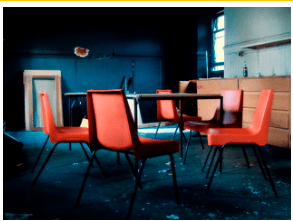 You walk into a room full of professionals who closely work together, who speak a specialized language of Edujargon and who are about to share information with you about your child ~ information that you are anticipating may be hard to hear. You have read your child’s report cards. You have been there each night as they try their best to understand how letters combine to make words and how numbers have a hidden pattern, which never seem to make sense. You brace yourself for the sharing of the “report” and wonder what next steps lie ahead.
You walk into a room full of professionals who closely work together, who speak a specialized language of Edujargon and who are about to share information with you about your child ~ information that you are anticipating may be hard to hear. You have read your child’s report cards. You have been there each night as they try their best to understand how letters combine to make words and how numbers have a hidden pattern, which never seem to make sense. You brace yourself for the sharing of the “report” and wonder what next steps lie ahead.